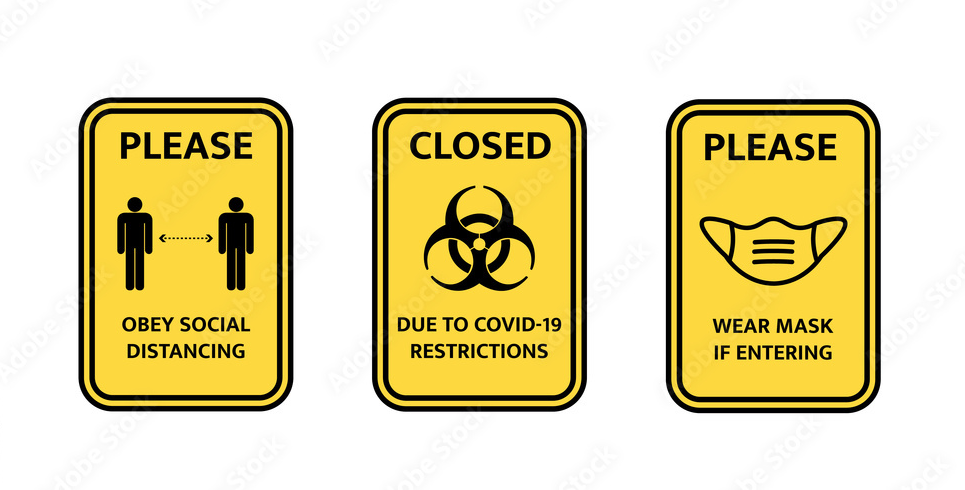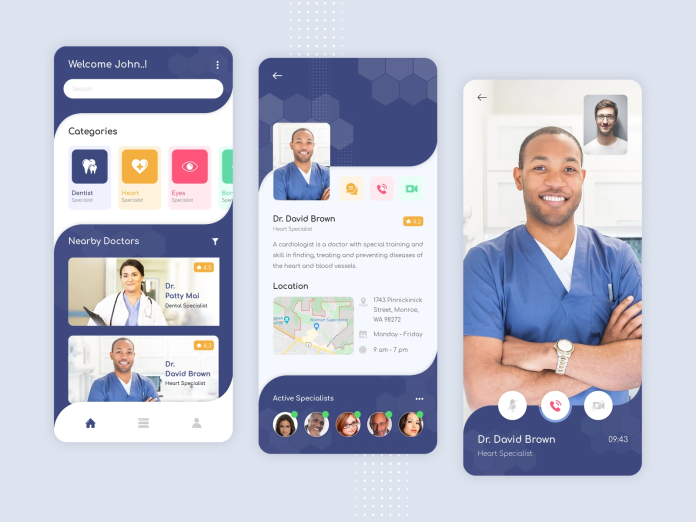Doctor consultation apps have revolutionized the way we approach medical care. With the rise of telemedicine, patients can now consult with doctors from the comfort of their homes. This is a significant shift from the traditional model of medical care where patients had to physically visit the doctor’s office. In this article, we will explore why doctor consultation apps are the future of medicine, what they are, their main features, the pros and cons, and how they have evolved during and after the COVID-19 pandemic.
Why Doctor Consultation Apps are the Future of Medicine
The future of medicine lies in telemedicine, and doctor consultation apps are a big part of that. These apps provide an easy and convenient way for patients to access medical care, regardless of their location. They eliminate the need for patients to physically visit the doctor’s office, which can be time-consuming and costly. With doctor consultation apps, patients can receive medical care anytime, anywhere, as long as they have an internet connection. So it’s very important to make sure that doctor consultation app development is not just standing still and that the apps keep evolving.
What is a Doctor Consultation App?
A doctor consultation app is a mobile application that allows patients to consult with doctors remotely. These apps typically require patients to create an account and provide some basic information about themselves. Once the account is created, patients can schedule a consultation with a doctor of their choice. The consultation can take place through video calls, voice calls, or instant messaging.
Main Features of Doctor Consultation Apps
Doctor consultation apps typically have several key features that make them useful for patients seeking medical care. These features can vary depending on the specific app, but some of the most common ones include:
- Video Consultations: Doctor consultation apps often provide patients with the ability to conduct video consultations with a doctor. This feature allows patients to see and speak with a doctor face-to-face, even if they are not in the same location.
- Secure Messaging: Patients can communicate with doctors through secure messaging systems within the app. This feature allows patients to ask questions or provide updates about their condition without having to schedule a consultation.
- Electronic Prescriptions: Many doctor consultation apps allow doctors to prescribe medication electronically. This feature can save patients time and effort by eliminating the need to physically pick up a prescription.
- Medical Records: Patients can access their medical records through the app. This feature allows patients to keep track of their health history and provides doctors with important information about a patient’s medical background.
- Virtual Waiting Room: Some doctor consultation apps have virtual waiting rooms, where patients can wait for their appointment to begin. This feature can help reduce wait times and improve the overall patient experience.
- Payment Processing: Doctor consultation apps often have built-in payment processing systems, allowing patients to pay for consultations and prescriptions directly through the app.
- Remote Monitoring: Some doctor consultation apps offer remote monitoring capabilities, allowing doctors to track a patient’s health metrics remotely. This feature can be particularly useful for patients with chronic conditions.
Pros and Cons of Doctor Consultation Apps
Doctor consultation apps have several advantages and disadvantages.
Pros:
- Convenience: Patients can consult with doctors from anywhere, which saves time and money.
- Access to Specialists: Patients can access specialists who may not be available in their area.
- Privacy: Patients can discuss sensitive medical information with their doctors without worrying about others overhearing.
- Cost-Effective: Doctor consultation apps are often less expensive than traditional medical care.
Cons:
- Limited Physical Examination: Doctors cannot conduct a comprehensive physical examination remotely, which may limit the accuracy of the diagnosis.
- Technical Issues: Technical issues such as poor internet connection can disrupt the consultation.
- Lack of Personal Connection: Patients may miss the personal connection that comes with traditional medical care.
- Not Suitable for Emergency Care: Doctor consultation apps are not suitable for emergency care.
How Doctor Consultation Apps Became More Popular in COVID-19 Pandemic and Were They as Popular Before That

The COVID-19 pandemic has played a significant role in the increased popularity of doctor consultation apps. Before the pandemic, these apps were gaining traction, but their adoption was still limited. However, with the emergence of the pandemic, doctor consultation apps have become more popular than ever before.
The COVID-19 pandemic forced people to adopt social distancing measures to curb the spread of the virus. This meant that people were hesitant to visit hospitals or clinics for routine check-ups or consultations. Doctor consultation apps offered a convenient and safe way for patients to consult with doctors remotely. Patients no longer had to risk exposure to the virus by visiting medical facilities in person.
Moreover, the COVID-19 pandemic also led to an increased demand for telemedicine services. Doctor consultation apps are just one type of telemedicine service, but they proved to be particularly useful during the pandemic. As a result, many healthcare providers and patients turned to doctor consultation apps to ensure continuity of care.
The convenience and accessibility of doctor consultation apps have made them increasingly popular among patients. People can access medical care from the comfort of their homes, and they no longer have to worry about long wait times or scheduling conflicts. Doctor consultation apps have also made healthcare more accessible to people in remote or underserved areas who may not have easy access to medical facilities.
How Doctor Consultation Apps Changed After the COVID-19 Pandemic
The COVID-19 pandemic has had a significant impact on the way doctor consultation apps operate. While some features of these apps remained the same, others have evolved to better meet the needs of patients and healthcare providers during the pandemic. Here are some ways doctor consultation apps have changed after the COVID-19 pandemic:
- Increased Adoption: The COVID-19 pandemic led to a significant increase in the adoption of doctor consultation apps. Many patients who had never used these apps before began using them during the pandemic as a way to access medical care safely and conveniently.
- Improved Features: To meet the increased demand for their services, many doctor consultation apps have improved their features. For example, some apps have added new features like virtual waiting rooms and remote monitoring capabilities to enhance the patient experience.
- More Robust Telemedicine Services: Doctor consultation apps are just one type of telemedicine service, but they have become a more prominent part of the telemedicine landscape after the pandemic. As a result, many healthcare providers have invested in more robust telemedicine services, including doctor consultation apps, to ensure they can continue to provide medical care during future pandemics or emergencies.
- Integration with Electronic Health Records (EHRs): To improve the continuity of care, some doctor consultation apps have integrated with EHRs. This integration allows doctors to access a patient’s medical history and other relevant information, improving the quality of care they can provide remotely.
- Increased Regulation: With the increased adoption of doctor consultation apps, there has been a corresponding increase in regulation. Many governments and regulatory bodies have introduced guidelines and standards to ensure the safety and efficacy of these apps.
Conclusion
Doctor consultation apps have become an increasingly popular way for patients to access medical care, particularly during the COVID-19 pandemic. These apps offer a convenient and accessible way for patients to consult with doctors remotely, and they have features like video consultations, secure messaging, electronic prescriptions, and virtual waiting rooms. The COVID-19 pandemic has led to an increase in the adoption of these apps, and many healthcare providers have invested in more robust telemedicine services to ensure continuity of care. While doctor consultation apps have evolved to meet the changing needs of patients and healthcare providers, they still face challenges related to regulation and patient privacy. Overall, doctor consultation apps are a promising and convenient solution for patients seeking medical care, but they should be used in conjunction with in-person visits to ensure comprehensive care.













